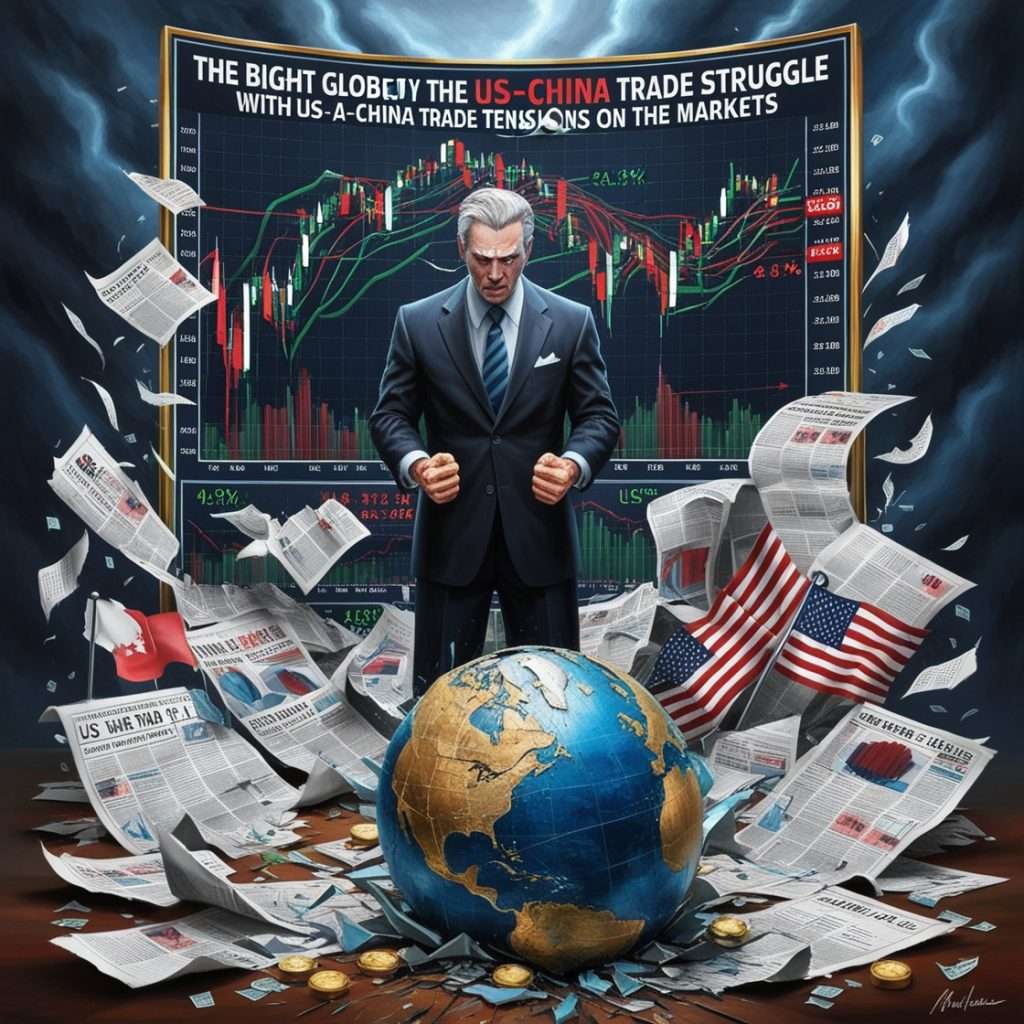The State of US-China Trade Relations
The trade relationship between the United States and China, two of the world’s largest economies, has been a focal point of global economic discussions for several years. Recent escalations in trade tensions have once again made headlines, influencing market dynamics and economic outlooks worldwide. This article explores the impact of US-China trade tensions on global markets, the factors driving these disputes, and what investors and businesses need to know.
The US-China trade relationship has been marked by periodic tensions and negotiations. Recent developments have intensified concerns over tariffs, trade barriers, and broader economic impacts. These tensions reflect deeper issues related to trade imbalances, intellectual property rights, and geopolitical strategies.
Key Factors Driving Trade Tensions
Tariffs and Trade Barriers: Both the US and China have imposed tariffs on each other’s goods, affecting a wide range of industries. These tariffs increase costs for businesses and consumers, leading to higher prices and disrupted supply chains.
Intellectual Property Disputes: Intellectual property theft and forced technology transfers have been major points of contention. The US has accused China of unfair practices related to intellectual property, which has led to sanctions and trade restrictions.
Geopolitical Rivalries: The trade tensions are part of a broader geopolitical rivalry between the two nations. Issues such as military presence in the Asia-Pacific region and influence over global institutions also contribute to the economic discord.
Impact on Global Markets
Market Volatility: Trade tensions have led to increased market volatility. Stock markets around the world react to news of tariffs, trade negotiations, and economic forecasts, leading to fluctuations in investment values.
Supply Chain Disruptions: Many global supply chains are intricately linked to both US and Chinese markets. Disruptions caused by trade barriers and tariffs impact manufacturing, logistics, and distribution networks, affecting various industries.
Consumer Prices: Higher tariffs can lead to increased costs for imported goods. Consumers may face higher prices for products ranging from electronics to clothing, impacting purchasing power and consumer spending.
Investor Sentiment: Uncertainty surrounding trade policies can affect investor sentiment. Market participants may become cautious or reluctant to invest in sectors heavily impacted by trade disputes, leading to shifts in investment strategies.
Sector-Specific Impacts
-
Technology: The technology sector is particularly affected by US-China trade tensions. Restrictions on technology transfers and access to markets can impact companies involved in electronics, software, and telecommunications.
-
Agriculture: Agricultural exports, such as soybeans and pork, are significant areas of trade between the US and China. Tariffs and trade barriers can impact prices and demand for these products, affecting farmers and agribusinesses.
-
Automotive: The automotive industry is also impacted by trade tensions. Tariffs on vehicle imports and components can increase production costs and influence global sales strategies for major automakers.
Navigating the Uncertainty
-
Strategic Planning: Businesses should develop strategies to mitigate the impact of trade tensions. This includes diversifying supply chains, exploring alternative markets, and adjusting pricing strategies to manage cost increases.
-
Investment Caution: Investors should stay informed about trade developments and consider the potential risks and opportunities. Diversifying investment portfolios and focusing on sectors less sensitive to trade disputes may help manage risk.
-
Policy Monitoring: Keeping track of policy changes and trade negotiations is crucial. Developments in trade agreements, tariffs, and international relations can have significant implications for global markets.
Looking Ahead: The Future of US-China Trade Relations
The future of US-China trade relations remains uncertain. Ongoing negotiations and potential agreements may influence the trajectory of trade tensions. The outcome of these discussions will shape market dynamics and economic conditions in the years to come.
US-China trade tensions continue to have a profound impact on global markets. By understanding the factors driving these disputes and their implications, businesses and investors can better navigate the challenges and opportunities presented by this complex economic relationship. Staying informed, adopting strategic approaches, and being prepared for market fluctuations will be key to managing the effects of ongoing trade tensions.





